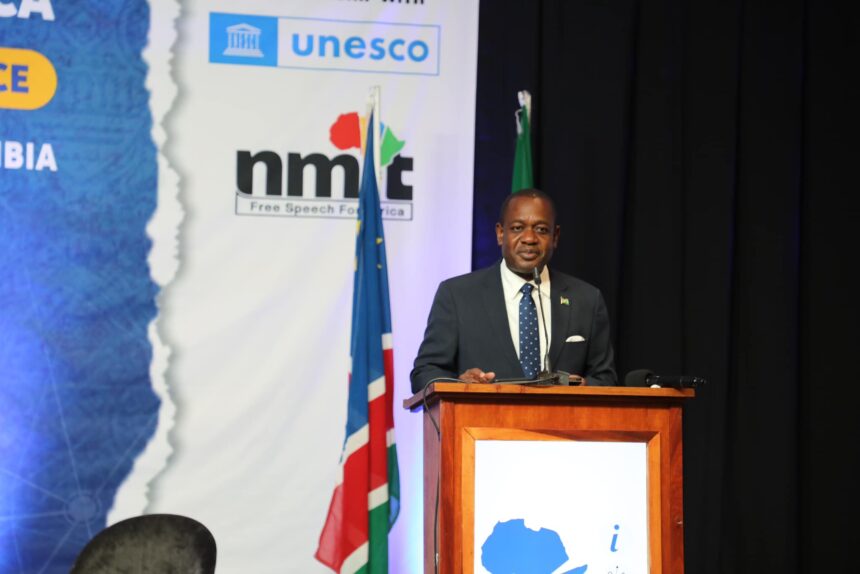The Minister of Information and Communication Technology, Peya Mushelenga, has emphasized the importance of protecting human rights and freedoms on the Internet in the digital age.
He was speaking at the Information and Communication Rights in Africa conference underway in Windhoek.
The conference aims to address challenges related to digital rights, access to information, freedom of expression and the media in Africa. With more than 40 participants from 16 countries in attendance, the two-and-a-half-day conference is poised to make a significant contribution to ongoing efforts in combatting the major obstacles affecting information and communication rights in the continent.
The conference serves as a platform for engaging in constructive dialogue and fostering collaboration among participants, with the shared goal of advancing information and communication rights in the region.
He highlighted the African Declaration on Internet Rights and Freedoms, which recognizes this critical challenge and calls for urgent resolution.
Anchored on the themes of Digital Rights, Access to Information, and Human Rights, the conference brings together individuals from across Africa who are dedicated to promoting these fundamental rights for the citizens of the continent.
By addressing the key issues and fostering partnerships, the conference seeks to contribute to the progress and development of information and communication rights in Africa.
“I would like to particularly implore upon stakeholders on communication rights to start focusing on communication rights for people with disabilities, so that they could be brought in the mainstream of information and communication,” he said.
Mushelenga emphasized that Africa follows the principles set forth in the African Charter on Human and Peoples’ Rights, which guarantees the right of every individual to receive information and express and disseminate their opinions within the confines of the law. These principles guide Africa in upholding information and communication rights.
Furthermore, as a responsible member of the international community and a member state of the African Union, Mushelenga said Namibia is fully committed to safeguarding and promoting information and communication rights. To fulfill this commitment, Namibia has adopted and implemented comprehensive laws and progressive policies that aim to protect these fundamental rights.
“Our government firmly believes that digital rights, access to information and freedom of expression and the press are inalienable human rights that must be defended at all costs. The Namibian Constitution protects these rights and as a society governed by laws, Namibian citizens are guaranteed their information and communication rights,” Mushelenga noted.
Namibia has earned a reputation for promoting press freedom, freedom of expression and access to information. It is widely recognized that Windhoek holds a significant place in this regard, as it is the birthplace of the Windhoek Declaration for the development of a free, independent, and pluralistic
press.
The declaration was adopted in 1991 during the UNESCO seminar on promoting an independent and pluralistic African press. Its impact has been instrumental in the establishment of World Press Freedom Day, celebrated annually on 3 May.
Furthermore, the recent Windhoek +30 Declaration reaffirmed the importance of information as a public good and reinforced the principles and spirit of the 1991 Declaration. Namibia continues to be a leading advocate for these fundamental rights.


